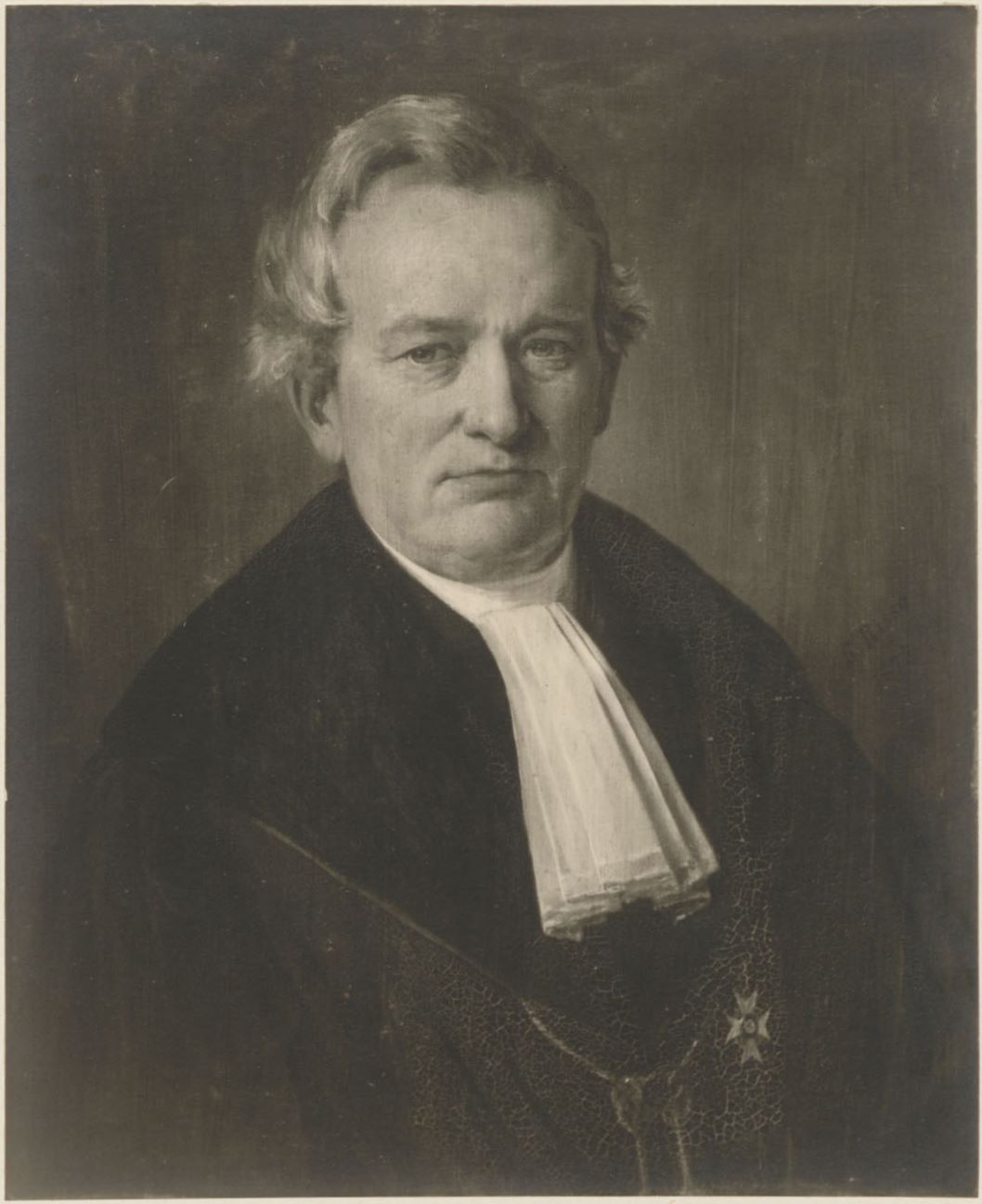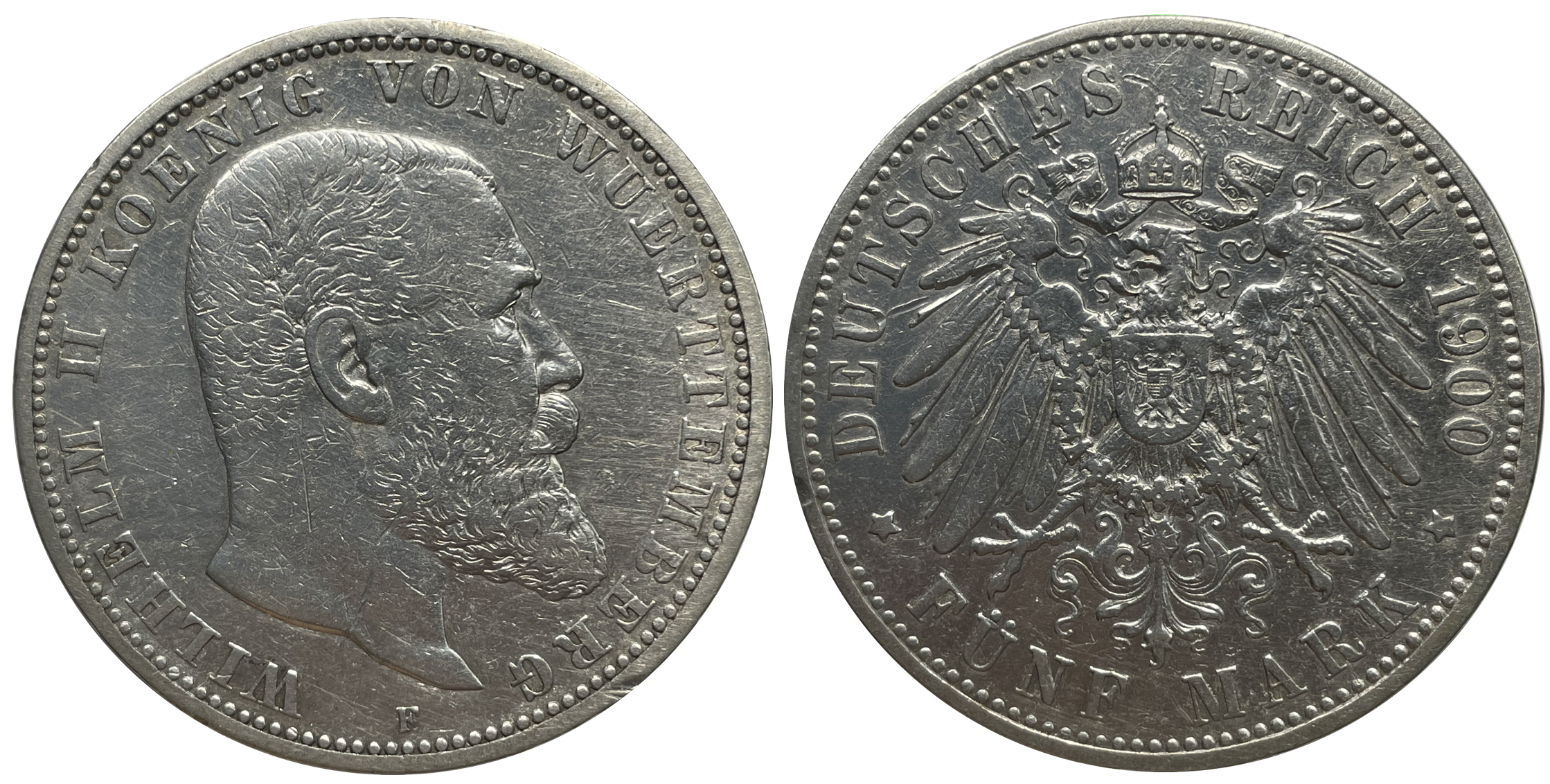|
Karl Heinrich Weizsäcker
Karl Heinrich Weizsäcker (11 December 1822 – 13 August 1899) was a German Protestant theologian. Life and work Weizsäcker was born in Öhringen near Heilbronn in Württemberg, the son of Sophie (Rößle) and Christian Ludwig Friedrich Weizsäcker. He studied at Tübingen and Berlin. After studying at the University of Tübingen and the Frederick William University of Berlin, he became ''Privatdozent'' at Tübingen in 1847 and professor of ecclesiastical history and the history of dogma in 1861. From 1856 to 1878 he helped to edit the ''Jahrbücher für deutsche Theologie'', and his elaborate studies ''Untersuchungen über die evangelische Geschichte, ihre Quellen und den Gang ihrer Entwicklung'' (Investigations in the history of the evangelical church, its sources, and its course of development, 1864) and ''Das apostolische Zeitalter der christliche Kirche'' (The Christian Church in the time of the apostles, 1886; Engl. trans. 1894-1895; 3rd ed. Leipzig and Tübingen: Mohr, 19 ... [...More Info...] [...Related Items...] OR: [Wikipedia] [Google] [Baidu] |
Carl Heinrich Weizsäcker
Carl may refer to: *Carl, Georgia, city in USA *Carl, West Virginia, an unincorporated community * Carl (name), includes info about the name, variations of the name, and a list of people with the name *Carl², a TV series * "Carl", an episode of television series ''Aqua Teen Hunger Force'' * An informal nickname for a student or alum of Carleton College CARL may refer to: *Canadian Association of Research Libraries *Colorado Alliance of Research Libraries See also *Carle (other) *Charles *Carle, a surname *Karl (other) *Karle (other) Karle may refer to: Places * Karle (Svitavy District), a municipality and village in the Czech Republic * Karli, India, a town in Maharashtra, India ** Karla Caves, a complex of Buddhist cave shrines * Karle, Belgaum, a settlement in Belgaum ... {{disambig ja:カール zh:卡尔 ... [...More Info...] [...Related Items...] OR: [Wikipedia] [Google] [Baidu] |
William II Of Württemberg
, spouse = , issue = Pauline, Princess of WiedPrince Ulrich , house = Württemberg , father = Prince Frederick of Württemberg , mother = Princess Catherine of Württemberg , birth_date = , birth_place = Stuttgart, Kingdom of Württemberg , death_date = , death_place = Bebenhausen, Württemberg, Weimar Republic , religion = Lutheran William II (german: Wilhelm Karl Paul Heinrich Friedrich; 25 February 1848 – 2 October 1921) was the last King of Württemberg. He ruled from 6 October 1891 until the dissolution of the kingdom on 30 November 1918. He was the last German ruler to abdicate in the wake of the November Revolution of 1918. Early years William was born the son of Prince Frederick of Württemberg (1808–1870) by his wife Princess Catherine Frederica of Württemberg (1821–1898), herself the daughter of King William I of Württemberg (1781–1864). His parents were first cousins, being the children of two brothers, and ... [...More Info...] [...Related Items...] OR: [Wikipedia] [Google] [Baidu] |
Academic Staff Of The University Of Tübingen
An academy ( Attic Greek: Ἀκαδήμεια; Koine Greek Ἀκαδημία) is an institution of secondary or tertiary higher learning (and generally also research or honorary membership). The name traces back to Plato's school of philosophy, founded approximately 385 BC at Akademia, a sanctuary of Athena, the goddess of wisdom and skill, north of Athens, Greece. Etymology The word comes from the ''Academy'' in ancient Greece, which derives from the Athenian hero, ''Akademos''. Outside the city walls of Athens, the gymnasium was made famous by Plato as a center of learning. The sacred space, dedicated to the goddess of wisdom, Athena, had formerly been an olive grove, hence the expression "the groves of Academe". In these gardens, the philosopher Plato conversed with followers. Plato developed his sessions into a method of teaching philosophy and in 387 BC, established what is known today as the Old Academy. By extension, ''academia'' has come to mean the accumulation, ... [...More Info...] [...Related Items...] OR: [Wikipedia] [Google] [Baidu] |
University Of Tübingen Alumni
A university () is an institution of higher (or tertiary) education and research which awards academic degrees in several academic disciplines. ''University'' is derived from the Latin phrase ''universitas magistrorum et scholarium'', which roughly means "community of teachers and scholars". Universities typically offer both undergraduate and postgraduate programs. The first universities in Europe were established by Catholic Church monks. The University of Bologna (), Italy, which was founded in 1088, is the first university in the sense of: *being a high degree-awarding institute. *using the word ''universitas'' (which was coined at its foundation). *having independence from the ecclesiastic schools and issuing secular as well as non-secular degrees (with teaching conducted by both clergy and non-clergy): grammar, rhetoric, logic, theology, canon law, notarial law.Hunt Janin: "The university in medieval life, 1179–1499", McFarland, 2008, , p. 55f.de Ridder-Symoens, Hilde ... [...More Info...] [...Related Items...] OR: [Wikipedia] [Google] [Baidu] |
Members Of The Württembergian Chamber Of Deputies
Member may refer to: * Military jury, referred to as "Members" in military jargon * Element (mathematics), an object that belongs to a mathematical set * In object-oriented programming, a member of a class ** Field (computer science), entries in a database ** Member variable, a variable that is associated with a specific object * Limb (anatomy), an appendage of the human or animal body ** Euphemism for penis * Structural component of a truss, connected by nodes * User (computing), a person making use of a computing service, especially on the Internet * Member (geology), a component of a geological formation * Member of parliament * The Members, a British punk rock band * Meronymy, a semantic relationship in linguistics * Church membership, belonging to a local Christian congregation, a Christian denomination and the universal Church * Member, a participant in a club or learned society A learned society (; also learned academy, scholarly society, or academic association) is ... [...More Info...] [...Related Items...] OR: [Wikipedia] [Google] [Baidu] |
Weizsäcker Family
The Weizsäcker family (), some with the nobiliary particle von (), originated in the former Kingdom of Württemberg and has had prominent and influential members over several generations. Its members include a Prime Minister of the Kingdom of Württemberg, a President of Germany, a leading diplomat, a prominent environmental scientist, and the physicist after whom the Bethe–Weizsäcker formula was named. : I. Christian Ludwig Weizsäcker (1785–1831), domestic chaplain to the Prince of Hohenlohe-Öhringen :: A. Hugo Weizsäcker (1820–1834) :: B. Karl Heinrich Weizsäcker (1822–1899), Protestant theologian and Chancellor of Tübingen University ::: 1. Karl von Weizsäcker (1853–1926), 1906–1918 Ministerpräsident to King William II of Württemberg :::: a. Ernst von Weizsäcker (1882–1951), diplomat who served as Secretary of State for Foreign Affairs and Ambassador to the Holy See ::::: i. Carl Friedrich von Weizsäcker (1912–2007), physicist and philosoph ... [...More Info...] [...Related Items...] OR: [Wikipedia] [Google] [Baidu] |
19th-century German Protestant Theologians
The 19th (nineteenth) century began on 1 January 1801 ( MDCCCI), and ended on 31 December 1900 ( MCM). The 19th century was the ninth century of the 2nd millennium. The 19th century was characterized by vast social upheaval. Slavery was abolished in much of Europe and the Americas. The First Industrial Revolution, though it began in the late 18th century, expanding beyond its British homeland for the first time during this century, particularly remaking the economies and societies of the Low Countries, the Rhineland, Northern Italy, and the Northeastern United States. A few decades later, the Second Industrial Revolution led to ever more massive urbanization and much higher levels of productivity, profit, and prosperity, a pattern that continued into the 20th century. The Islamic gunpowder empires fell into decline and European imperialism brought much of South Asia, Southeast Asia, and almost all of Africa under colonial rule. It was also marked by the collapse of the la ... [...More Info...] [...Related Items...] OR: [Wikipedia] [Google] [Baidu] |
People From Öhringen
A person ( : people) is a being that has certain capacities or attributes such as reason, morality, consciousness or self-consciousness, and being a part of a culturally established form of social relations such as kinship, ownership of property, or legal responsibility. The defining features of personhood and, consequently, what makes a person count as a person, differ widely among cultures and contexts. In addition to the question of personhood, of what makes a being count as a person to begin with, there are further questions about personal identity and self: both about what makes any particular person that particular person instead of another, and about what makes a person at one time the same person as they were or will be at another time despite any intervening changes. The plural form "people" is often used to refer to an entire nation or ethnic group (as in "a people"), and this was the original meaning of the word; it subsequently acquired its use as a plural form of p ... [...More Info...] [...Related Items...] OR: [Wikipedia] [Google] [Baidu] |
1899 Deaths
Events January 1899 * January 1 ** Spanish rule ends in Cuba, concluding 400 years of the Spanish Empire in the Americas. ** Queens and Staten Island become administratively part of New York City. * January 2 – **Bolivia sets up a customs office in Puerto Alonso, leading to the Brazilian settlers there to declare the Republic of Acre in a revolt against Bolivian authorities. **The first part of the Jakarta Kota–Anyer Kidul railway on the island of Java is opened between Batavia Zuid ( Jakarta Kota) and Tangerang. * January 3 – Hungarian Prime Minister Dezső Bánffy fights an inconclusive duel with his bitter enemy in parliament, Horánszky Nándor. * January 4 – **U.S. President William McKinley's declaration of December 21, 1898, proclaiming a policy of benevolent assimilation of the Philippines as a United States territory, is announced in Manila by the U.S. commander, General Elwell Otis, and angers independence activists who had fought ... [...More Info...] [...Related Items...] OR: [Wikipedia] [Google] [Baidu] |
1822 Births
Eighteen or 18 may refer to: * 18 (number), the natural number following 17 and preceding 19 * one of the years 18 BC, AD 18, 1918, 2018 Film, television and entertainment * ''18'' (film), a 1993 Taiwanese experimental film based on the short story ''God's Dice'' * ''Eighteen'' (film), a 2005 Canadian dramatic feature film * 18 (British Board of Film Classification), a film rating in the United Kingdom, also used in Ireland by the Irish Film Classification Office * 18 (''Dragon Ball''), a character in the ''Dragon Ball'' franchise * "Eighteen", a 2006 episode of the animated television series '' 12 oz. Mouse'' Music Albums * ''18'' (Moby album), 2002 * ''18'' (Nana Kitade album), 2005 * '' 18...'', 2009 debut album by G.E.M. Songs * "18" (5 Seconds of Summer song), from their 2014 eponymous debut album * "18" (One Direction song), from their 2014 studio album ''Four'' * "18", by Anarbor from their 2013 studio album ''Burnout'' * "I'm Eighteen", by Alice Cooper commo ... [...More Info...] [...Related Items...] OR: [Wikipedia] [Google] [Baidu] |
Paul Von Bruns
Paul von Bruns was a German surgeon. He was born in Tübingen, and was the son of surgeon Victor von Bruns. His father-in-law was Protestant theologian Karl Heinrich Weizsäcker. Bruns was born July 2, 1846. In 1882, Bruns became director of the surgical clinic at Tübingen, as well as a full professor at the University. He was the author of works on numerous medical subjects — laryngotomy for removal of growths in the larynx, acute osteomyelitis, gunshot wounds, limb operations and the treatment of goiters, to name a few. In 1885, he founded ''Beiträge zur klinischen Chirurgie'' (Contributions to Clinical Surgery), and was its editor until his death. With Ernst von Bergmann (1836-1907) and Jan Mikulicz-Radecki Jan Mikulicz-Radecki (german: Johann Freiherr von Mikulicz-Radecki) was a German-Polish-Austrian surgeon who worked mainly in the German Empire. He was born on 16 May 1850 in Czerniowce in the Austrian Empire (present-day Chernivtsi in Ukraine ... (1850-190 ... [...More Info...] [...Related Items...] OR: [Wikipedia] [Google] [Baidu] |




_1938.jpg)
